The Most Important Book I Read This Year
In lieu of my top books this year, I'm writing about one that stood out above the rest and immortalizes some of the victims of October 7th.
At the end of each calendar year, I make lists and definitely don’t check them twice. These include Chanukah gift guides and Jewish reads. This year, however, I wasn’t in the mood to make a wacky gift guide, and when it came to book recs, there was only one book I kept coming back to and wanted to focus on. But you’ll find other book recs at the bottom of this email. And if you’re interested in Jewish reads, you should definitely join our virtual book club on 1/12. Register here!
Trigger warning: depictions of violence and loss. This post is intense, but not as intense as the book. While reading it, many people said to me, “I could never read that. I could never put myself through that.” While this is understandable, I recommend at least reading this review of the book to honor those whose lives were taken on October 7th, 2023. They didn’t have a choice, and their individual stories and lives are worth remembering. And then after reading, go hug someone you love and hold them close.
10/7: 100 Human Stories by Lee Yaron
This was the hardest and most important book I’ve ever read. I broke down crying two or three times while reading it, and I often found myself putting it aside to take breaks.
Honoring civilian lives lost on 10/7 like a Yizkor book of our day, each chapter not only describes their final moments, but also captures the spirit and resilience of their communities, and their individual hopes, dreams, and legacies.
At first, I wondered why a reporter from the left-wing Israeli newspaper, Haaretz, would document Hamas’ massacre in such a way, but once I started reading, I immediately understood. The victims of the massacre whose lives are beautifully honored in this book were the peacekeepers of the Israeli-Palestinian conflict, those who truly believed peace was achievable.
One of those cases is probably the most famous name of Vivian Silver. Those who know her name know she was a peace activist and that she lived on Kibbutz Be’eri, a kibbutz whose members were often on the secular left and were active in building bridges between Israelis and Palestinians.
A native Canadian, Vivian co-founded the Arab-Jewish Center for Equality, Empowerment and Cooperation, which created jobs in impoverished Arab communities and brought young Arab and Jewish people together to volunteer. She drove sick Gazan children to hospitals. She was a bastion of peace and hope.
One unforgettable moment from the book captures her spirit. As she was hiding in her safe room during the attack, she was being interviewed by an Israeli radio station that managed to get in touch with her. Rockets and gunshots were going off all around her, yet she was still advocating for peace over the telephone.
Interviewer: “It seems there’s only one sane side this morning. Discussing both sides might not be pertinent now-we’re under attack.”
Vivian: “Well, then I suggest we continue this conversation after the crisis.”
Shortly after they hung up, she was texting her son (Him: “Just write something.” Her: “Something… Sorry, I’m trying to keep my sense of humor.”).
For five weeks, her son didn’t know what happened to her and assumed she was kidnapped and taken into Gaza. Then he received the news: Vivian’s apartment, including her safe room, was set ablaze by terrorists. A piece of her jawbone was discovered and matched to her DNA. This post is for her.
Another important name to know is Moshe Ohayon, a social activist who moved to the southern city of Ofakim from Jerusalem to make a difference. A couple of days before 10/7, Moshe hosted an event in his sukkah as part of an initiative called Sukkat Shalom (Sukkah of Peace), which brings two people together with different social, cultural, religious, and/or political views, not to debate but to learn and find common ground.
That day, Moshe brought together two prominent figures: a leader of the protests against Netanyahu’s Judicial Reform, and a leading voice from the West Bank settlement and Religious Zionist community. 50 people attended, and this was just one example of more than 250 sukkot erected that holiday that brought people of different backgrounds together. It’s no wonder Moshe was described as "the essence of good.”
On 10/7 when terrorists infiltrated Ofakim, Moshe, along with his son Eliad, immediately went in his car and headed straight for the gunshots, despite his neighbors telling him to hide.
They tried to fight and fend off as many terrorists as they could. Their family hadn’t heard from them in hours, and only found out about their deaths when another one of the sons, Amitai, went looking for them and a witness showed him a picture of Moshe’s and Eliad’s bodies, father and son, in an embrace, their bodies pierced with bullets. This post is for them.
This post for is for Nadezhda and Natalya Sprebchikov-Tumiib, two sisters and best friends from the former Soviet Union who had moved to Israel in search of a better life. They just wanted to enjoy a trip to the Dead Sea, but were shot down along with other elderly, immigrant vacationers.
This post is for the Nepalese workers, the young men who traveled to Israel to farm and learn. They hid behind rice sacks, praying to see another day. One drank urine because he was badly injured and needed water. A couple of the young men were kidnapped and taken into Gaza. They wanted to earn money for their families back home. They wanted to finish the final season of Vikings.
This post is for the nineteen Negev Bedouins who died that day, whose community has a 2,200 times higher risk of dying from rocket attacks compared to the rest of the Israeli population, despite pleading with the government for years to grant them more protection. It’s important to note that a group of women in hijabs begged Hamas in Arabic to spare their lives, but Hamas killed them indiscriminately anyway.
This post is for Tamar Torpiashvili, a nine-year-old who died of a heart attack from the stress of constant rocket sirens in the days following the attacks. Her family described her as an angel, born on Shabbat and having died on Shabbat. She wanted to be an influencer and was loved by many.
This post is for Dolev Suissa, a father who died protecting his three-year-old daughter. Separated from his wife and their other daughter, he was shot and begged the young girl to go find her mother and sister. She didn’t want to leave him but he made her, knowing he was going to die, the ultimate sacrifice a parent could make.
Joshua Cohen, writer and Yaron’s husband, writes in the afterword, “It’s possible to read this book and finish it with a desire for revenge, and it is equally possible to read this book and finish it with a renewed commitment to peace.” I read this book during the High Holidays when I heard sermons on opening your heart to other ideas and perspectives, even when it feels impossible. Personally, this book pulled me toward both emotions, but it ultimately leaned toward peace—because peace, fragile as it may seem, is all we have.
Thank you for reading. There’s so many other stories from this book I didn’t cover. Let’s make sure their lives were not lost in vain. And if you’re in New York, the author is having a free book talk at Central Synagogue on 1/9. Register here.
📖 More of My 2024 Jewish Reads
Renia’s Diary: A Holocaust Journal by Renia Spiegel
Known as “the Polish Anne Frank,” this diary belonged to Renia Spiegel, a teenager during the Holocaust. Renia was a student, a poet, and a dreamer, and she documented her life from 1939-1942 up until her death in a ghetto. Her diary, which was uncovered and published decades after the war, contains mostly the musings of a teenage girl in love with war looming in the background. Her poetry is mature for a 14-year-old because she was forced to grow up at a young age. This is another book that made me cry, because the end of her short life is harrowing. You feel like you’re experiencing her death in real time due to the nature of its abrupt ending.
Clearly I’ve had a theme this year, and I know I’ve written about this one before, but it’s worth mentioning again. Based on a true story, this novel follows Anne whose family receives a mysterious postcard listing relatives who died in the Holocaust. On a quest to find the sender and the reason for the mysterious postcard, she embarks on a journey of Jewish identity and family history. I learned quite a bit about Jewish life in France during this period. This book was also the first novel I read that vividly depicted the days just after the war when families were desperately searching for their loved ones who were most likely dead, bringing the book to a devastating close.
Shabbat Shalom. What Jewish books have you read this year?

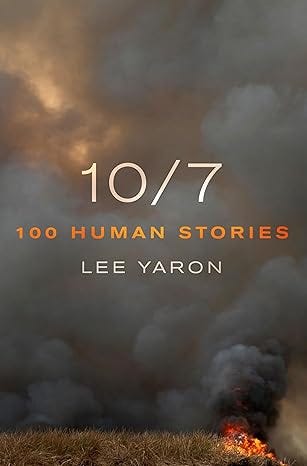
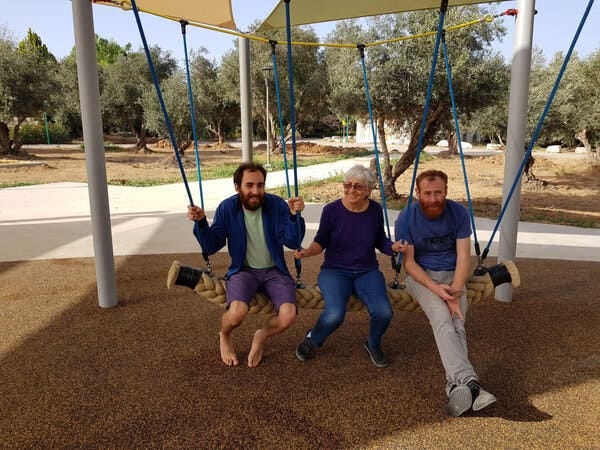
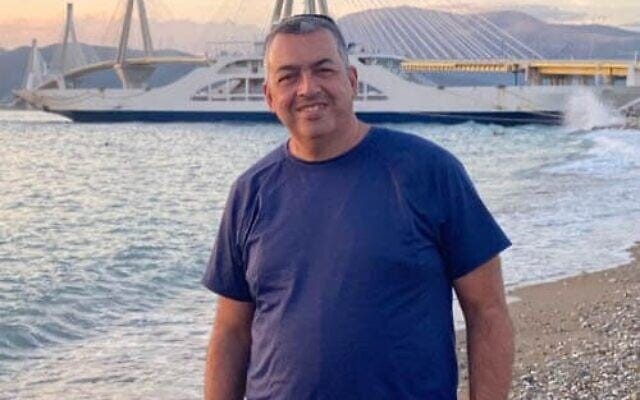
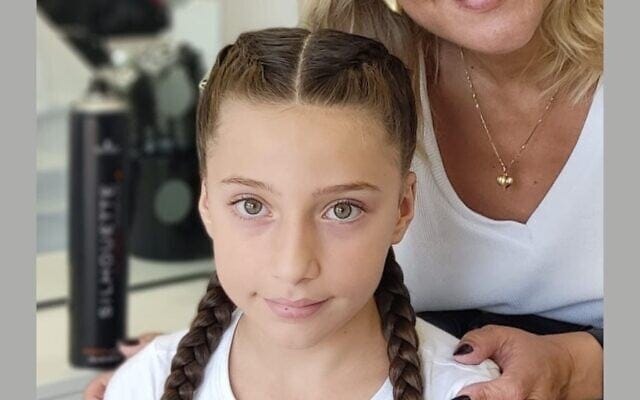
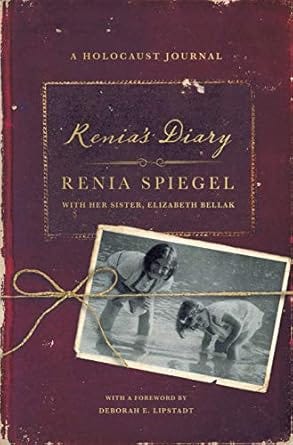
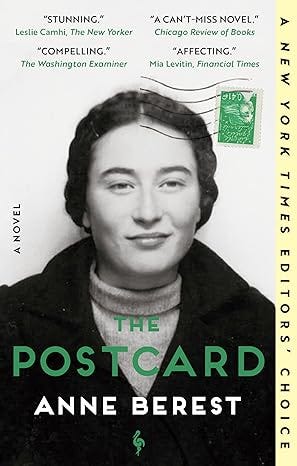

again, thank you for keeping us so well-informed about that which is so important.